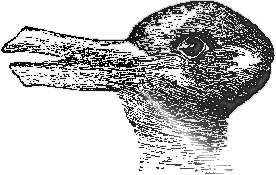Serendip is an independent site partnering with faculty at multiple colleges and universities around the world. Happy exploring!
Blogs
Inquiry Project: Teaching English Abroad as a Person of Color
One of my post-undergrad dreams is to find a way back to France, a country in which I had the opportunity to study abroad junior year. I figured that teaching English would be a way to gain experience in a classroom, keep myself immersed in French culture, and have the chance to explore other parts of Europe as well. Gaining an understanding about the White-Savior Industrial Complex, though, had me questioning my initial desires of wanting to teach English abroad. Did I want to teach abroad with the mentality of “helping” and “making a difference”? Did I subconsciously crave this opportunity as a way to please my ego? How might my own privileges as an American impact my pedagogy in the classroom, and relationship with the community? How would they differ if I were not a woman of color? These kinds of questions inspired my inquiry project into the implications and experiences of Americans teaching abroad.
BlackinAsia and English as a Tool of Imposition

"speaking in the voice of the Poet..."
In writing this and planning out what quotes I want to reference, I'm remembering that my book's pages are different than those of everyone else in this class, which continues for me the questions we began asking last class about language and translation. There is no way for any of you with your copies to find the exact page I refer to without me giving the chapter and you searching through the whole thing. There is an added level of inconvenience and disconnect beyond what would already exist by nature of me being one person understanding and expressing a quote one way and you being another person with a potentially different understanding.
Moving beyond that, I want to raise the importance of the poet Rilke, or "the Poet" as Nirmal most commonly refers to him in his journal. Much of The Hungry Tide is framed around Nirmal's descriptions of the Tide Country and the specific struggle over the island Morichjhapi, and he seems to root his understanding of the Sundarbans in Rilke's poetry: "...nothing escapes the maw of the tides; everything is ground to fine silt, becomes something new. It was as if the whole tide country was speaking in the voice of the Poet: 'life is lived in transformation'" (from end of chapter: Transformation). Also, quoting Rilke:

ambigous figures--and free will
When Jenna highlighted the passage in The Hungry Tide where Piya shows the guard a picture of the Gangetic dolphin and "he asked if it was a bird," I thought immediately of the ambiguous figure of the "Rabbit Duck" (do you know this? can you see both?)

Ambiguous figures like this one are important in illustrating not only (as Jenna said) that "people with different backgrounds perceive things differently," but also that everything we perceive we might perceive otherwise (or, as I still tell my children, "you can always tell a different story"). If you are interested in thinking-or-writing more about this phenomenon (which is a visual extension of the conversation we had yesterday about the imprecision of language) you might want to explore some the material on Serendip about ambiguous figures--as a demonstration of informed guessing and (always my friend Paul's punch line) free will....

4/23: What I Might Have Said
Since I wasn't able to be in class yesterday because I was sick, here are some of my thoughts about The Hungry Tide in response to Anne's class notes.

Devoured by the Hungry Tide of Language
“It is as though the word itself were an island, born of the meeting of two great rivers of language…” (69)
“…the Bengali language was an angry flood…” (79)
“river of words” (83)
“…her words have come flooding back to me in a torrent.” (134)

Home and Exile in the Hungry Tide
So far, I have really enjoyed reading the Hungry Tide and I keep thinking about how the novel ties back to our overarching English/360 conversation of home and exile. The themes of home, belonging, and exile come up quite frequently in the text--Piya, who's heritage and physichal appearance make her look like an insider still feels somewhat siloed from the Indian culture and way of life, and seemingly feels more at home when searching for the rare species of dolphin. Kanai, who is more of an insider than Piya, also plays the role of an outsider as he reads and learns more about Kusum's story. Another way in which home comes up in the text is when Piya recalls the memory of how attached her father was to a towel that had become an old, tattered piece of fabric. "In general, the least sentimental of men [... the cloth] was almost like a piece of his body, like his hair or nail clippings; his luck was woven into it" (73). These themes of home/belonging/exile in the text raise the questions: can one feel like and be an insider and outsider in a space that is supposed to be his or her home? Is it possible for an object to represent home? Can such an object (natural or unnatural) feel like it is a part of us?
Increasing Latino Parental Involvement through Parental Partnerships with Schools
Emily Crispell
Multicultural Education
Inquiry Project
April 17, 2014
Increasing Latino Parental Involvement through Parental Partnerships with Schools
Introduction


